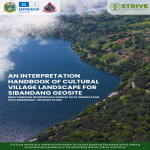Traveling has evolved beyond the mere act of exploration; it has become a platform for fostering meaningful connections and contributing positively to local communities. Responsible travel emphasizes the importance of minimizing the negative impact of tourism while maximizing the benefits for local people. At the core of responsible travel lies the empowerment of communities, a key factor in creating sustainable and mutually beneficial tourism practices.
Understanding Responsible Travel
Responsible travel involves conscious decision-making by both travelers and tourism providers to reduce the environmental, social, and cultural impact of their activities. It goes beyond simply treading lightly on the environment; it encompasses a commitment to supporting local economies, preserving cultural heritage, and ensuring that communities benefit from tourism in a fair and equitable manner.
Economic Empowerment
One of the primary ways responsible travel empowers communities is through economic avenues. Local businesses, such as family-owned guesthouses, artisan workshops, and small-scale farmers, often bear the positive impact of responsible tourism. By choosing locally-owned accommodations, purchasing handmade souvenirs, and dining in local eateries, travelers contribute directly to the economic development of the communities they visit. This ensures that a significant portion of the tourism revenue stays within the community, fostering economic resilience.
Cultural Preservation
Responsible travel recognizes the intrinsic value of preserving cultural diversity. Communities are empowered when tourists show respect for local customs, traditions, and practices. Tourists can engage in cultural exchanges, participate in community events, and support cultural heritage projects. In turn, communities are encouraged to maintain and celebrate their unique identities, creating a positive cycle that reinforces cultural preservation and appreciation.
Environmental Stewardship
Preserving the natural environment is another crucial aspect of responsible travel. Communities often rely on their surrounding ecosystems for sustenance and livelihoods. Responsible travelers make choices that minimize their environmental footprint, such as opting for eco-friendly accommodations, practicing waste reduction, and supporting conservation efforts. This approach safeguards the natural resources that communities depend on, ensuring their long-term well-being.
Community Involvement and Education
Empowering communities through responsible travel involves active engagement and education. Tourists can participate in community-led initiatives, volunteer programs, and cultural exchanges that foster a deeper understanding of local challenges and triumphs. By sharing knowledge and resources, responsible travelers contribute to the capacity-building of communities, enabling them to take charge of their own sustainable development.
Challenges and Opportunities
While responsible travel brings numerous benefits, challenges persist. Striking a balance between tourism growth and preserving the essence of local communities requires careful planning and collaboration. Governments, businesses, and travelers must work together to address issues such as overtourism, inadequate infrastructure, and unequal distribution of tourism benefits. Turning these challenges into opportunities for positive change is crucial for the long-term success of responsible travel.
Conclusion
Empowering communities lies at the heart of responsible travel, transforming tourism from a potential threat to a force for positive change. As travelers, we hold the power to shape the impact of our journeys, choosing experiences that contribute to the well-being of the places we visit. By embracing responsible travel principles, we not only enrich our own experiences but also play a pivotal role in creating a sustainable and harmonious future for the communities that graciously welcome us into their homes.





